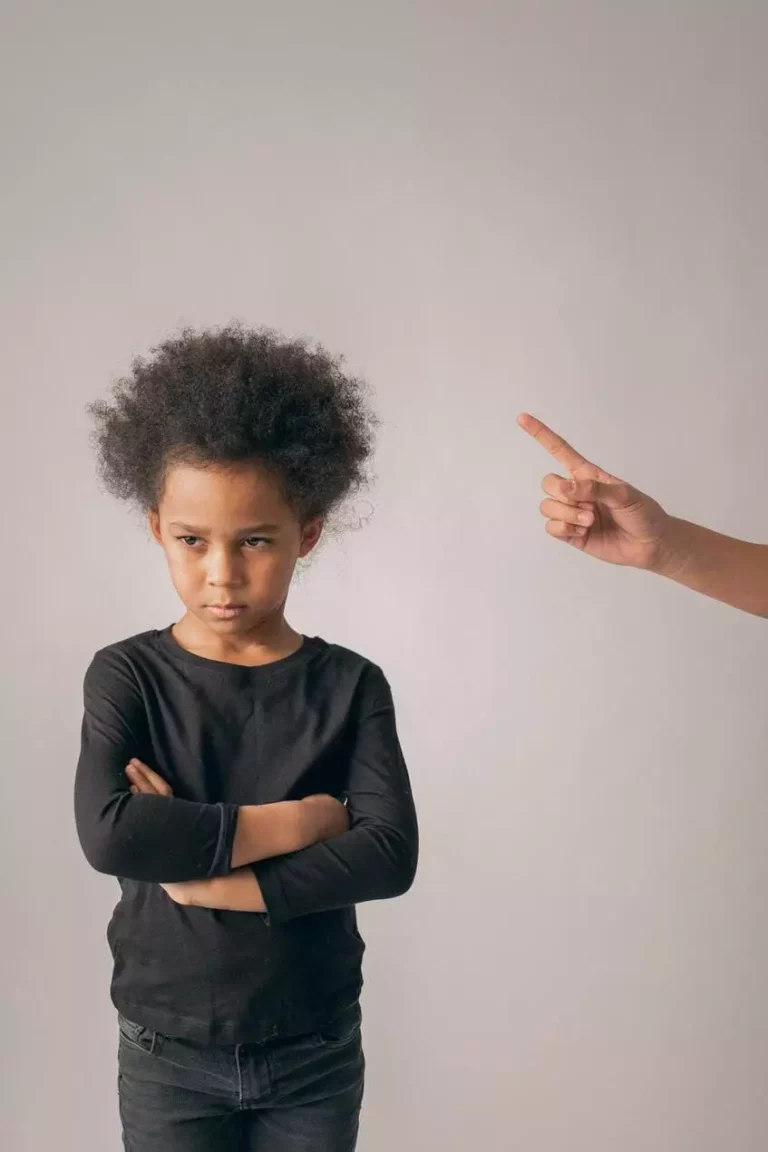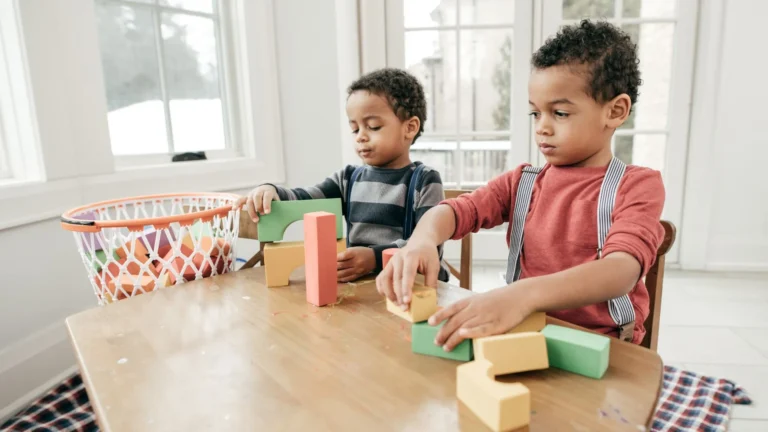Why Grounding Your Kids Doesn’t Work! Try A New Approach!!

In the early days of parenting, grounding was a very common punishment to give. Grounding your kids means that they are restricted from going anywhere or doing anything outside of the house.
Grounding children can be effective when done correctly to teach them how their actions affect others and what they should have done instead. However, in today’s society, it may not be the most effective punishment for children. Grounding your kids doesn’t work because of these 4 reasons.
1. Grounding Only Works if They are Learning Something
If you’re grounding your child because they haven’t completed their chores or homework, they aren’t learning anything new when that happens. Grounding your kids only works if they are learning something new that will help them in the future.
For example, grounding a child from watching TV if they are not doing their homework would be effective because they know that watching TV is important but so is their homework and they need to learn how to balance both activities.
2. Grounding Doesn’t Teach Them How to Make Amends
When grounding your kids, they are usually restricted from going anywhere but home. Grounding a child does not teach them how their actions affect others or how to make amends for their mistakes.
Children need to learn the effects of their actions for them to learn and grow positively. Grounding usually only teaches children that they can’t go out and do anything and doesn’t teach them how to make amends for their mistakes.
3. Grounding Can Result in Negative Emotions
Grounding your kids may result in negative emotions. Grounding children can cause them to become depressed, frustrated, and angry with their parents leading to a decrease in trust between the two.
Grounding your child does not teach them how to have a positive way of dealing with their frustrations or anger which can be life-long lessons. Grounding a child needs to be replaced with consequences that focus on teaching children about making amends for their mistakes and how their actions affect others negatively or positively.
4. Grounding Can Result in a Power Struggle
Grounding your kids can cause a power struggle because they don’t agree with the grounding and may intentionally break the rules or try to manipulate their parents into lifting the grounding.
Grounding your kids can also cause them to become more rebellious and act out to get attention from their parents. When grounding your children, you must discuss the grounding with them so they understand why they are being grounded and how long it will last.
Grounding your children can be effective but should only be used as a last resort when all other forms of punishment do not work. Grounding should never increase the amount of time because it could lead to a power struggle between you and your child which will damage the child’s trust in their parents and over time affect their mental health.
Possible Ideas for Improvements:
– Grounding kids may seem like a good idea, but it doesn’t work. Grounding can also come with other negative effects on your child in the future.
– Grounding is considered to be ineffective when applied as a punishment for teens and adolescents.
– Grounding kids has many short-term and long-term impacts. Grounding prevents teenagers from learning essential skills and inhibits the development of healthy relationships with their parents. Grounding may also lead to the development of bad habits in children.
– Grounding is an ineffective way to punish teenagers since it only teaches them that negative behavior gets rid of positive consequences. Grounding does not teach kids how to be responsible, nor does it provide any form of rehabilitation for problem behavior.
Grounding kids can also come with negative long-term impacts on their lives, such as creating an unhealthy relationship with your child and developing bad habits.
– Grounding is ineffective because it prevents teens from learning essential skills that are necessary for becoming an adult. Grounding also inhibits the development of a healthy relationship between teenagers and their parents.
So Why Do Parents Ground Their Kids as Punishment?
They do it because it is easy and it’s what happened to them as they were growing up, for some reason society believes that it can solve problems by repeating the same burdens, they do it because it takes no effort. But Grounding is not a punishment. Grounding is a useless technique that doesn’t accomplish anything.
Parents Ground Their Kids for Crimes as Little as Not Doing the Dishes or for talking back to a parent in the same tone the parent talks to the child. Or a Grounding May Be an Attempt to Punish a Child For Whining, Cursing, or Not Doing Homework.
What happens in Grounding? You take away the only thing your child really enjoys in life, besides his/her friends, and that is extracurricular activities like sports or clubs they are involved in, you take these things away for days, weeks, or even months at a time.
It may seem like Grounding has worked because your child is now sobbing in the corner of their room, but what Grounding does is make a child feel like they are worthless and that nobody likes them, that no one understands them, in some cases with a Narcissistic parent it just reinforces the feeling of unloved. Grounding teaches kids the wrong things.

Kids will resolve to never be Grounded again; all Grounding does is teach children how to sneak around parents and get away with things. Grounding is like Groundhog Day, it continues to happen over and over for the rest of their childhoods.
Grounding is a punishment that teaches nothing; children will become better liars and sneakier while Grounded. Grounding doesn’t teach children lessons they need to learn because all Grounding does is take away extracurricular activities or in today’s society digital grounding.
Grounding only makes children more miserable and it negatively affects their self-esteem. It is an ineffective way to punish a child and should not be used as a punishment for children of any age because it only creates more problems than solutions.
Grounding kids cannot teach them how to make positive choices, or educate them about taking responsibility, nor does it provide the chance of rehabilitation for problem behavior.
So, what can you do if your child is displaying behavior that needs to be addressed? Well, the first thing parents need to do is make sure they are communicating properly with their children.
If there isn’t a proper communication channel between parents and their children then problems will only continue to spiral out of control. If parents are experiencing problems resulting from bad communication with their children, then they need to change the way they talk to their kids and learn how to speak in a language that their children can understand.
Another thing parents should do if Grounding isn’t working is find out what is driving the misbehavior and address it head-on. This means teaching your child how to make good decisions and reinforcing positive behaviors.
So, parents need to make sure they are reaching out and establishing a good relationship with their children to provide them with the guidance necessary when it comes to learning appropriate behaviors and making smart choices.
This will enable your child to grow up into an adult that has all of the skills needed to be successful, rather than fearing the world they live in. Children are learning, they will make mistakes!
Instead of Harsh Discipline, Focus on What Needs to Be Learned…
Teach your child how to navigate the situation, and how to understand their behavior. First, find the root cause of the behavior, then decide how to proceed, not the other way around.
Punishment is just running away from dealing with what you don’t want your kids to do, but it’s ignoring what you need to learn to discipline them better.

Some parents are very strict when it comes to behavior. If their child breaks a rule they’ll punish them. Some parents are looser and would give their child another chance. The problem with grounding kids is that it often doesn’t work.
Instead of punishing, try to find out why your kids did what they did. Otherwise, you run the risk of teaching them the wrong lesson about how to behave in certain situations.
Here’s an example: A child opens up a present early and is punished. The lesson they learn isn’t to open presents early – it’s that mom and dad are mean and overreact when you make mistakes.
Or, another example: A teen gets caught drinking alcohol at a party and they’re grounded (that means no TV, no social life, etc.) The lesson they learn is that the world is harsh and overreacts to mistakes.
If you want your kids to be better people then it’s important not only what they’re punished for but why. This will help them understand how their actions affect other people. A great book on this subject is Nonviolent Communication written by Marshall Rosenberg.
Just as you were once a kid, kids are going to explore, and try things. The programming you as the parent, the environment, and the culture are uploading to them will determine what those things are.

Punishment vs. Consequences: Which One Are You Using?
Punishment is defined as making someone suffer for an offense, crime, or fault;
Consequences are the natural and logical results of our actions.
So if your kids don’t clean their room they might have to sleep on the floor. That’s a consequence because it’s the natural result of not cleaning one’s room. On the other hand, if you ground your kid and they can’t sleep in their room then that’s a punishment. Punishment focuses on the parent and puts their needs before those of the child.
A consequence is something that naturally results from your kids’ behavior. A consequence teaches them how to behave better next time, but doesn’t hurt them.
So, if your child doesn’t clean their room then they can’t go to a friend’s house – that’s a consequence because it naturally results from their behavior. It allows them the chance to learn without hurting them or running away from what you don’t want your kids doing.
Don’t make them suffer for their mistakes, teach them what you want them to learn. Your child should feel safe in your house, even when they’ve done something wrong.
Punishment teaches children that mistakes are bad and something to be ashamed of – it also teaches kids not to trust their parents which is why punishment often results in teens getting into more trouble because they think “Oh, I can’t trust my parents so I might as well go do what I want.” That’s not healthy at all.
So, even if you’re trying to teach your kids a lesson by making them suffer the consequences of their actions, there is a better way than punishment. Learning how to make decisions and learning empathy are two of the most important life lessons, but punishment doesn’t teach either of those things.
Instead, try to understand why your kids acted the way they did, and then figure out how you can help them learn what you want them to know. The more time you spend trying to “punish” your kids, the less time you’ll be able to connect with them and teach them the lessons you want them to learn.
Your kids don’t want to suffer and they don’t want to be punished. They just want love and guidance. Give them that, not punishment!
Conclusion
Parenting is not easy, and unless you are just going through the motions of recycling your children into the same dysfunctional patterns, your parents did to you then you are trying to figure out how to give your children the best start in life.
Unfortunately, the idea that parents need to re-invent parenting for each generation is flawed. There is no substitute for learning from our own past mistakes, but there are many things that were not accessible to previous generations.
For this reason, it is important to establish the difference between punishment and consequences/logical reactions to behavior. I would propose that instead of making your children suffer for their mistakes will not help them, you use this time as an opportunity to teach them empathy, reflection, and problem-solving skills.
Grounding your children and making them “pay” for their mistakes does not teach them these fundamental life skills; it teaches the opposite.
Punishment makes kids feel like they are bad people and robs parents of the chance to connect with them emotionally during this time.

Parents need to learn from history but also need to learn from their mistakes and failures. Punishment does not teach empathy, reflection, problem-solving skills, self-control, and logical results of our actions. If your kids don’t clean their room they might have to sleep on the floor. That’s a consequence because it’s the natural result of not cleaning one’s room.
Instead, make them clean their room and explain to them why you want them to do it. For example: “Kids need to learn how to take care of the space they live in; this room is your home too and you should treat it that way.”
That way, your kids will learn a lesson about responsibility. If you punish your kids for not cleaning their room, they will only do the exact opposite because they won’t be able to understand why it’s important.
If you would like to learn more about conscious parenting and ways to empower your children, sign up for my 8-week course where we work hand in hand in making this transformation!!
“FAQ”
Why do you think parents need to re-invent parenting for each generation?
Parents who try to raise kids to follow what they got away with as children are not giving those kids the tools they need to be successful in life. If your parents never taught you how to behave, or all they did was punish you, now is the time to learn from your failures. Now is the time to break the cycle.
When our kids are being defiant it is often hard for us as parents to think clearly, instead a parent is usually triggered by their own emotions and trauma and then they respond to their children from an egoic place stirring up negative emotions. Take some time to calm yourself down before you speak to your child. Meditation is a good way to deal with overwhelming emotions.
What are the general things that never change about kids?
Kids need unconditional love, they also need guidance, understanding, and boundaries. They also need parents who give them the space they need to grow into healthy adults.
How have you found it ineffective?
Grounding someone is an easy way to punish actions without addressing the underlying issues. Grounding simply punishes actions and does not give children a chance to learn from their mistakes.



